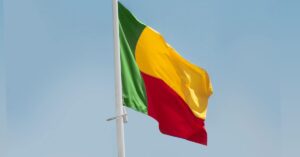The UN released a report this month analysing the environment in which Human Rights Defenders operate in the Pacific islands of Fiji, Kiribati, Republic of Marshall Islands, Papua New Guinea, Solomon Islands, Tuvalu and Vanuatu.
In the course of the investigation, 95 HRDs were interviewed fromthe seven countries, 80% were Women Human Rights Defenders (WHRDs) and 50 % of those WHRDs were in rural/remote areas. Apart from in Fiji, most HRDs surveyed say that they lack solid country-wide human rights defence networks due to geographical sparseness of the islands and the lack of digitization to bridge this contextual issue. Even in places where there was a significant degree of digitalisation, the digital gender divide is in some parts a hindrance to the exercise of human rights defence.
Here are some excerpts from the report’s conclusions:
The areas in which HRD protection is particularly challenging are transitional justice and the fight against impunity; women’s rights; the rights of LGBTI people; minorities and refugees; economic, social and cultural rights in relation to large-scale development projects that involve environment and natural resources, such as the extractive industry.
WHRDs in the Pacific face challenges working within a region where structural discrimination, patriarchy, religious fundamentalism as well as socio-economic inequalities are constant barriers. Impunity for violence against women was highlighted by WHRDs as a prevalent issue is Pacific society and contributes to an overwhelming sense of fear and injustice.
In some countries, there is a hostile public discourse and negative images in the media that depict HRDs as stupid, anti-development, trouble makers, traitors or witches.
Digitalization of the Pacific remains a gap in a region that covers one-third of the surface of the globe and where countries and islands are far and wide apart; this gap impedes network for effective and meaningful human rights work and the work of HRDs. Technology has a positive transformative potential.



